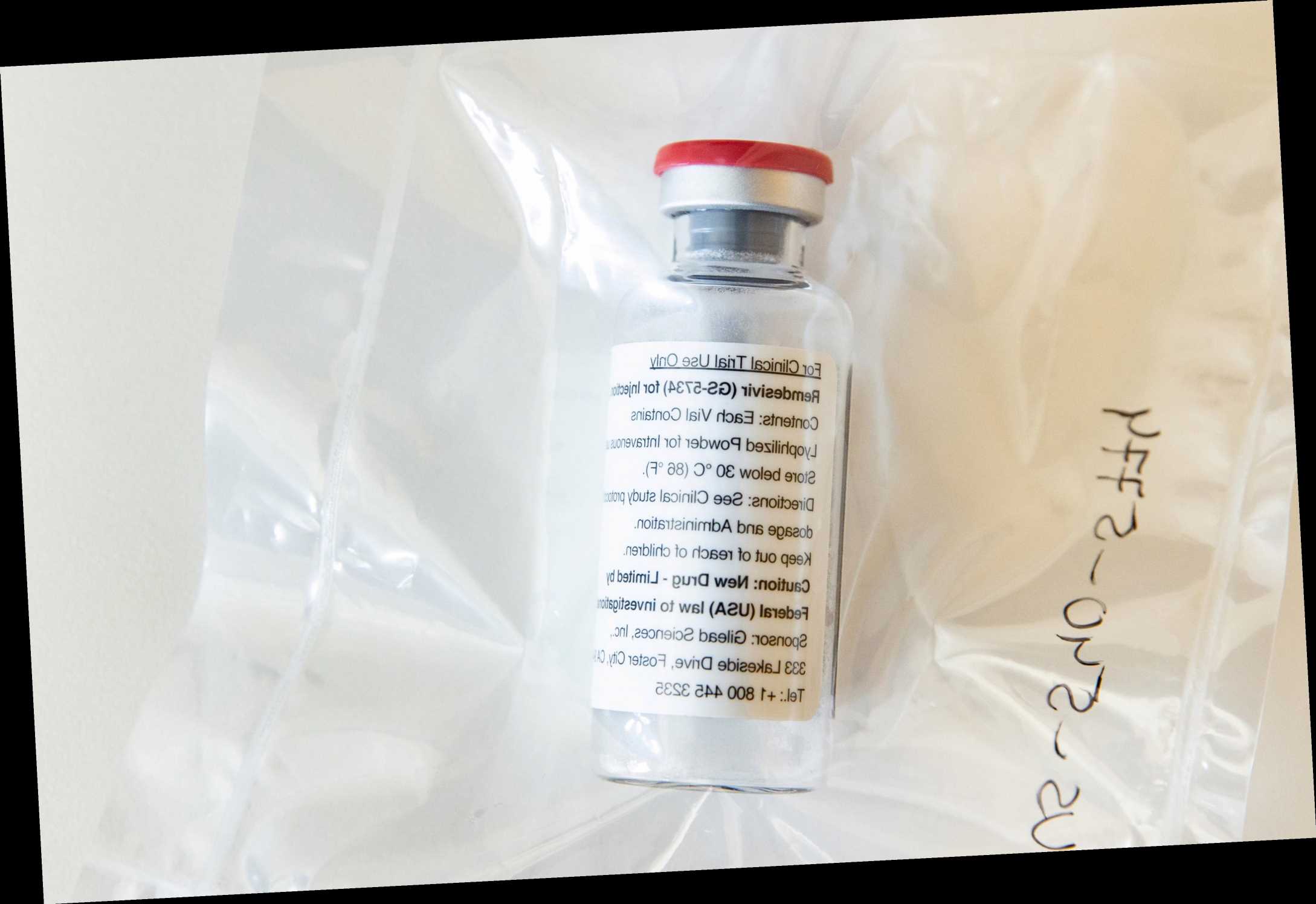EBOLA drug remdesivir is set to be approved to treat coronavirus patients in EU within days.
The World Health Organisation (WHO) previously dubbed it "the most promising" treatment for Covid-19 among all the other medicines being studied in trials.
⚠️ Read our coronavirus live blog for the latest news & updates
And the head of the European Union's medicines agency Guido Rasi revealed today that an initial authorisation for US pharmaceutical company Gilead's remdesivir as a Covid-19 treatment could be granted in coming days.
This could mean that Brits with coronavirus could soon be treated with the experimental antiviral drug.
"It might be that a conditional market authorisation can be issued in the coming days," Rasi told a hearing in the EU Parliament in Brussels.
The European Medicines Agency (EMA) has already recommended the compassionate use of remdesivir, which allows a drug to be administered to patients even before it has been fully authorised.
Fast results
Apart from remdesivir, Rasi said other possible treatments against Covid-19 that may be available fast are those based on monoclonal antibodies, which can "neutralize" the new coronavirus (Sars-CoV-2) that causes the illness Covid-19.
Remdesivir was initially created as a potential treatment for Ebola.
It was quickly pushed through clinical trials during the West African outbreak of 2013-15, after showing promising results in the lab, and was then rolled out more widely in affected areas of Africa.
Despite this, in 2019 Congolese health chiefs said the drug was less effective than first thought – and had a less significant impact on lowering death rates than monoclonal antibody drugs, which are often used for cancer treatment.
Killer disease blocked
Remdesivir has been revived during the coronavirus pandemic.
This is because it showed promising results in preventing Middle East Respiratory Syndrome (Mers) and severe acute respiratory syndrome (Sars), which are also caused by coronaviruses.
The drug is given through an IV and is designed to interfere with the virus’s ability to copy its genetic material.
It is administered via daily infusion for about ten days.
The Food and Drug Administration (FDA) cleared the drug for use in the US on hospitalised patients with “severe disease” – like those on ventilators – earlier this month.
However, other health organisations around the world have not approved the drug for use, and given it was mainly being used for Ebola, supply is low.
A US trial found that remdesivir could block the killer disease, it was revealed last month.
Results from the federal drug trial revealed that at least 50 per cent of patients treated with remdesivir improved and were quickly released from the hospital.
Gilead Sciences said the experimental antiviral drug helped severe Covid-19 patients who were given the drug earlier than those who were given it later.
Remdesivir has a clear-cut, significant, positive effect in diminishing the time to recovery
Top US doc Anthony Fauci, director of the National Institute of Allergy and Infectious Diseases and a member of the White House coronavirus task force, said: "The data shows that remdesivir has a clear-cut, significant, positive effect in diminishing the time to recovery."
Fauci described the results of the study "reminiscent of 34 years ago in 1986 when we were struggling for drugs for HIV."
Despite this, the World Health Organisation (WHO) prematurely posted research which found the drug was ineffective, and even potentially harmful.
The documents showed that the Chinese study involved 237 patients, of whom 158 were given remdesivir and 79 a placebo.
After 28 days of treatment with remdesivir there was no difference in symptoms or mortality between the two groups.
However, a spokeswoman for Gilead Sciences said that the nature of the latest accidentally published study did not "enable statistically meaningful conclusions".
Other drugs being investigated for Covid-19 include those for malaria and HIV which can attack the virus as well as compounds that can calm the immune system.
It is thought the anti-virals may be more effective in the early stages, and the immune drugs later in the disease.
CORONAVIRUS CRISIS – STAY IN THE KNOW
Don't miss the latest news and figures – and essential advice for you and your family.
To receive The Sun's Coronavirus newsletter in your inbox every tea time, sign up here.
To follow us on Facebook, simply 'Like' our Coronavirus page.
Get Britain's best-selling newspaper delivered to your smartphone or tablet each day – find out more.
Source: Read Full Article





